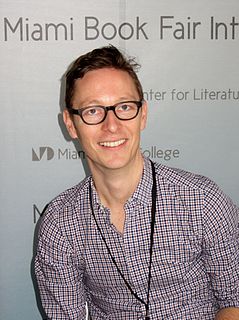A Quote by David Eddings
I can read Middle English stories, Geoffrey Chaucer or Sir Thomas Malory, but once I start moving in the direction of contemporary fantasy, my mind begins to take over.
Related Quotes
If you are going to write, say, fantasy - stop reading fantasy. You've already read too much. Read other things; read westerns, read history, read anything that seems interesting, because if you only read fantasy and then you start to write fantasy, all you're going to do is recycle the same old stuff and move it around a bit.
Why do I feel so exercised about what we think of the people of the Middle Ages? ... I guess it's because so many of their voices are ringing vibrantly in my ears - Chaucer's, Boccaccio's, Henry Knighton's, Thomas Walsingham's. Froissart's, Jean Creton's... writers and contemporary historians of the period who seem to me just as individual, just as alive as we are today. We need to get to know these folk better in order to know who we are ourselves.
First impressions of mediaeval life are usually coloured by the courtly romances of Malory and his later refiners. Chaucer brings us down to reality, but his people belong to a prosperous middle-class world, on holiday and in holiday mood. Piers Plowman stands alone as a revelation of the ignorance and misery of the lower classes, whose multiplied grievances came to a head in the Peasants' Revolt of 1381.
I have these guilts about never having read Chaucer but I was talked out of learning Early Anglo-Saxon / Middle English by a friend who had to take it for her Ph.D. They told her to write an essay in Early Anglo-Saxon on any-subject-of-her-own-choosing. “Which is all very well,” she said bitterly, “but the only essay subject you can find enough Early Anglo-Saxon words for is ‘How to Slaughter a Thousand Men in a Mead Hall’.

































